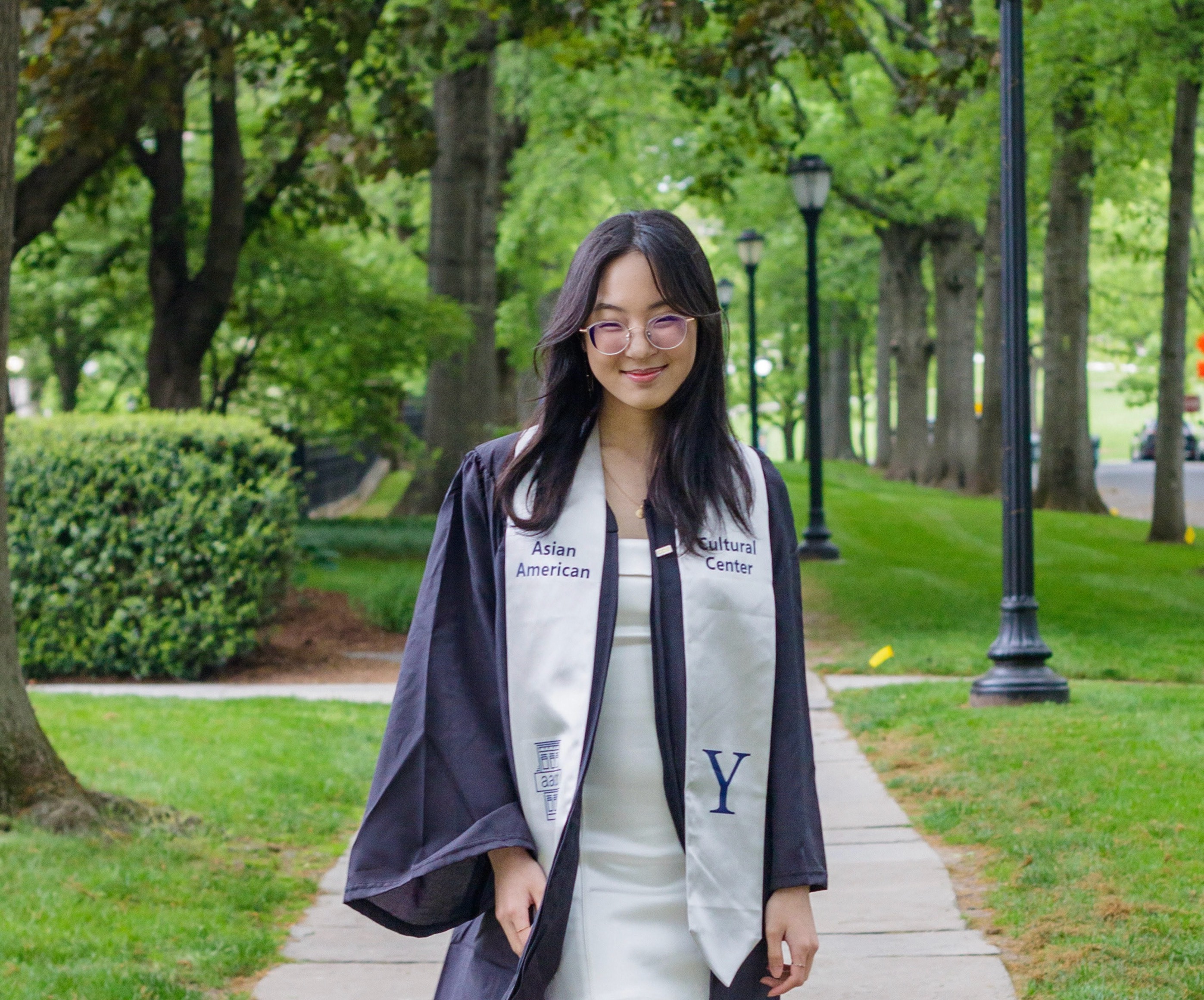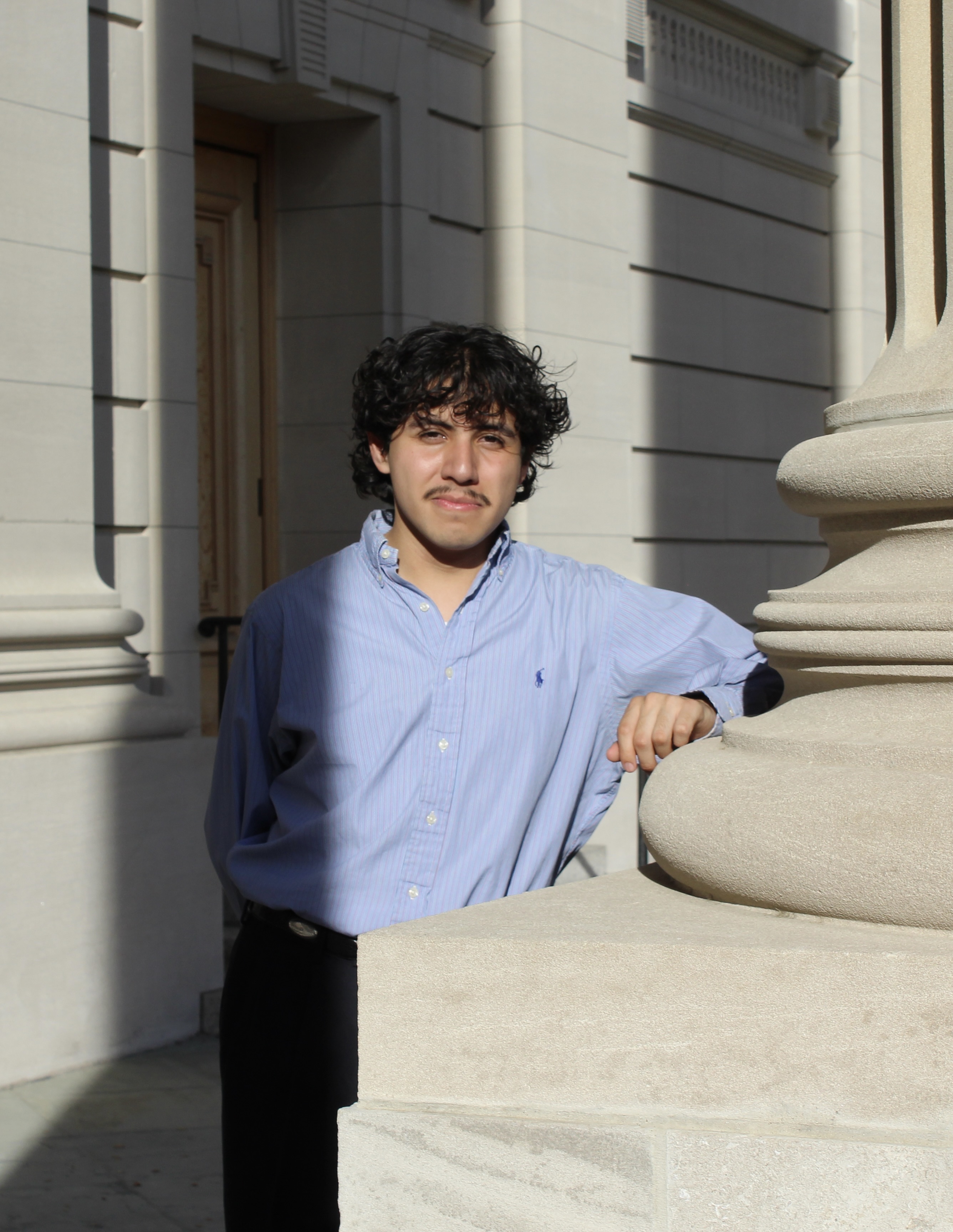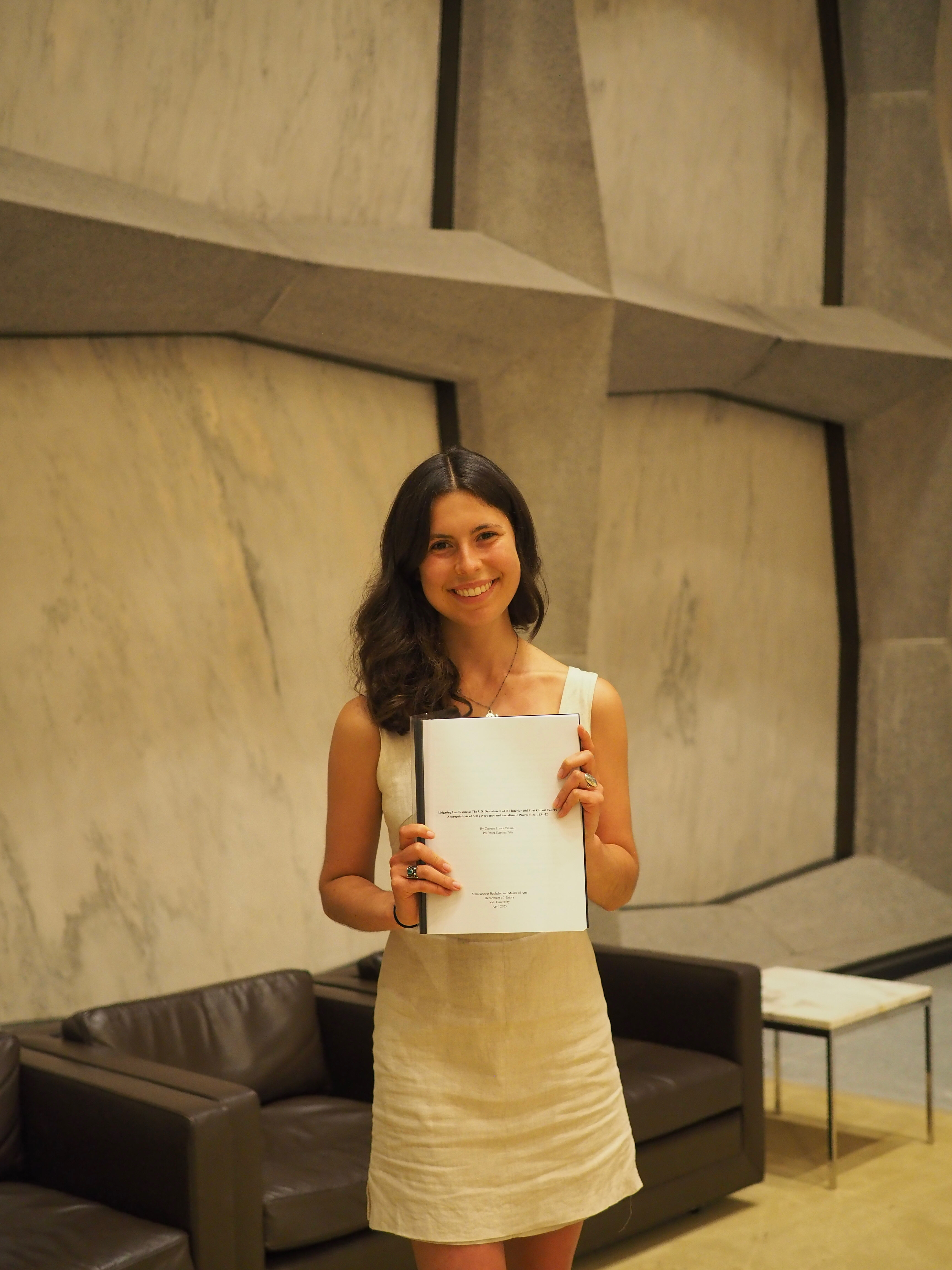Established in 1988, the Henry K. Hayase Prize is awarded annually to the best student paper or senior essay dealing with a topic relating to Asian American experiences in the United States.
Established in the fall of 2009, the Justice Carlos R. Moreno Prize is awarded annually to the best senior essay focusing on the field of Latinx Studies, or on the Latinx experience in the United States.
Learn more about the winners and their senior essays below.
Henry K. Hayase Prize Awardee
Jenny Lee, Ethnicity, Race, and Migration
“I Write in the Wake: Toward a Korean American Feminist Consciousness with KAWA”
Jenny Lee’s “I Write in the Wake: Toward a Korean American Feminist Consciousness with KAWA” offers a beautiful, learned, eloquent, and extremely accomplished account of the nine Korean American Women who created the 1993 zine Korean American Women with Attitudes (KAWA). Seamlessly weaving wide-ranging historical research with textually and visually attentive close readings, Lee movingly narrates the story of KAWA and critically unpacks the political and aesthetic significance of this zine within the context of Asian American life and Third World studies. What is most memorable about Lee’s thesis is the voice in which it is written. Lee integrates the methodological lessons of feminist, queer, and crip studies so as to foreground the author's embodied positionality and modes of encounter. The essay's sensitive and searching narrative voice enacts the “epistemology of attitude as a form of feminist consciousness and affect” that is so central to the women of KAWA. Because of this methodological and epistemological orientation toward attitude, Lee writes not only about but also with her interlocutors, providing an evocative rendering of place, time, body, memory.
Advisor: Kyunghee Eo
Jenny Lee (she/her) grew up just outside Seattle and recently graduated from Yale, where she studied Economics and Ethnicity, Race, & Migration. She spent her time dwelling in classes on Korean literature and disability studies while leading Asian American student organizations and attending late-night Communication and Consent Educator meetings—searching for spaces that spoke and listened with tenderness as a politics. Her senior thesis was a creative project weaving autotheory, archival fragments, and literary analysis toward an articulation of Korean American feminist consciousness shaped by the entangled affects of violence, loss, madness, and humor. Her work is grounded in the belief that movement hinges on real curiosity, discernment, and the art of articulation—language through which to feel, notice, and move.
Justice Carlos R. Moreno Prize Awardees
Jonathan Tomás Balderas, Ethnicity, Race, and Migration
“Mexican Working-Class in Kansas City: Composing Political Imaginations in the Midwest (1920-1953)”
 Beautifully and sensitively written, “Mexican Working-Class in Kansas City” draws on a remarkable range of primary sources, including memoirs, oral histories, photographs, and union records. By focusing on four workers’ lives, Jonathan Tomás Balderas vividly renders the struggles Mexican and Mexican American unionists faced as they contested institutional racism, violence, and exploitation at the ice stations, packing houses, and beet farms where they labored. Balderas takes up the work of EP Thompson to construct a compelling working-class history hewn to the energies and visions of Mexicans in Kansas City, during decades of political tumult and challenge.
Beautifully and sensitively written, “Mexican Working-Class in Kansas City” draws on a remarkable range of primary sources, including memoirs, oral histories, photographs, and union records. By focusing on four workers’ lives, Jonathan Tomás Balderas vividly renders the struggles Mexican and Mexican American unionists faced as they contested institutional racism, violence, and exploitation at the ice stations, packing houses, and beet farms where they labored. Balderas takes up the work of EP Thompson to construct a compelling working-class history hewn to the energies and visions of Mexicans in Kansas City, during decades of political tumult and challenge.
Advisors: Stephen Pitti and Ximena López Carrillo
Jonathan (they/them) graduated from Yale College with a B.A. in Ethnicity, Race, & Migration and History with distinction. As a Mellon Mays Undergraduate Fellow, they researched histories of Mexican workers in the Midwest with a focus on their home state of Kansas. Jonathan also mentored first-years as a Peer Liaison at La Casa Cultural, played the violin for Mariachi de Yale, and organized with the local labor movement with Students Unite Now and Mecha. They will intern at the Smithsonian Institution through the Latino Museum Studies Program before pursuing doctoral studies.
Carmen López Villamil, History
“Litigating Landlessness: The U.S. Department of the Interior and First Circuit Court’s Appropriations of Self-governance and Socialism in Puerto Rico, 1934-52”
 Erudite and conceptually rich, “Litigating Landlessness” weaves together multiple historiographies, relating to Puerto Rican nationalism, the New Deal, the Cold War, and Federal Indian Law, to produce an utterly original and forceful account of land reform failures in Puerto Rico in the post-World War Two period. Carmen López Villamil conveys strong arguments about the legal mechanisms that underwrote U.S. settler militarism, while raising generative questions about the complex human relationships and intimate lives of the actors compelled to wage politics from within and against the island’s distinct colonial status.
Erudite and conceptually rich, “Litigating Landlessness” weaves together multiple historiographies, relating to Puerto Rican nationalism, the New Deal, the Cold War, and Federal Indian Law, to produce an utterly original and forceful account of land reform failures in Puerto Rico in the post-World War Two period. Carmen López Villamil conveys strong arguments about the legal mechanisms that underwrote U.S. settler militarism, while raising generative questions about the complex human relationships and intimate lives of the actors compelled to wage politics from within and against the island’s distinct colonial status.
Advisor: Stephen Pitti
Carmen is from Brooklyn, New York. She graduated from Yale with a joint BA/MA in History focusing on twentieth-century Latinx and Latin American social movements. She worked at the Yale Sustainable Food Program, with the Yale Prison Education Initiative, co-leading WYBCx’s Teen Takeover radio program, and as a history research assistant while in college. Over the summers, she has worked on youth self-governance with Lamplight Summer Camp in Birmingham, Alabama, conducting archival research with the Centro de Derechos Humanos FRAYBA in Chiapas, Mexico, and teaching with the International Rescue Committee in New York City. Her thesis won the Manuscripts and Archives Diane Kaplan Memorial Prize and the History Department’s John Addison Porter American History Prize. With the support of the Parker Huang Fellowship, she will spend the next year researching landless workers’ popular and professionalizing education programs in Brazil.
